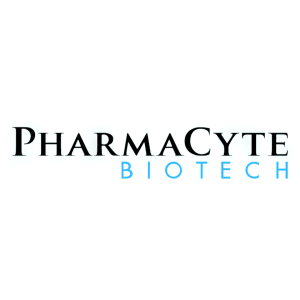PharmaCyte Biotech Announces Positive Results of Biocompatibility Study for FDA
PharmaCyte’s Chief Executive Officer,
The complement system consists of multiple proteins, approximately 30 of which are circulating blood proteins that work together to promote immune and inflammatory responses. The complement system’s principal role is to help identify, destroy, and remove foreign pathogens such as bacteria and viruses, as well as damaged cell materials (for example, cells and proteins).
The objective of the ISO 10993-4: 2017 (E) compliant study was to evaluate the complement activation potential of empty cellulose sulphate capsules when mixed with normal human serum complement under in vitro test conditions. The study was performed by a third-party GLP laboratory. That laboratory concluded that empty cellulose sulphate capsules did not activate the complement system under defined experimental conditions based on the results of the study. These results were also supported by statistical comparisons.
To learn more about PharmaCyte’s pancreatic cancer treatment and how it works inside the body to treat locally advanced inoperable pancreatic cancer, we encourage you to watch the company’s documentary video complete with medical animations at: https://www.PharmaCyte.com/Cancer.
About
PharmaCyte’s therapy for cancer involves encapsulating genetically engineered human cells that convert an inactive chemotherapy drug into its active or “cancer-killing” form. For pancreatic cancer, these encapsulated cells are implanted in the blood supply to the patient’s tumor as close as possible to the site of the tumor. Once implanted, a chemotherapy drug that is normally activated in the liver (ifosfamide) is given intravenously at one-third the normal dose. The ifosfamide is carried by the circulatory system to where the encapsulated cells have been implanted. When the ifosfamide flows through pores in the capsules, the live cells inside act as a “bio-artificial liver” and activate the chemotherapy drug at the site of the cancer. This “targeted chemotherapy” has proven effective and safe to use in past clinical trials and we believe results in little to no treatment related side effects.
PharmaCyte’s therapy for Type 1 diabetes and insulin-dependent Type 2 diabetes involves encapsulating a human cell line that has been genetically engineered to produce, store and release insulin in response to the levels of blood sugar in the human body. The encapsulation of the cell line will be done using the Cell-in-a-Box® technology. Once the encapsulated cells are implanted in a diabetic patient, we anticipate that they will function as a “bio-artificial pancreas” for purposes of insulin production.
Safe Harbor
This press release may contain forward-looking statements within the meaning of the Private Securities Litigation Reform Act of 1995 that express the current beliefs and expectations of the management of PharmaCyte. Any statements contained herein that do not describe historical facts are forward-looking statements that are subject to risks and uncertainties that could cause actual results, performance and achievements to differ materially from those discussed in such forward-looking statements. Factors that could affect our actual results include our ability to raise the necessary capital to fund our operations and to find partners to supplement our capabilities and resources, our ability to satisfactorily address the issues raised by the FDA in order to have the clinical hold on our IND removed, as well as such other factors that are included in the periodic reports on Form 10-K and Form 10-Q that we file with the
More information about
View source version on businesswire.com: https://www.businesswire.com/news/home/20210916005259/en/
Dr.
Investor Relations:
Investor Relations Department
Telephone: 917.595.2856
Email: InvestorRelations@PharmaCyte.com
Source:







